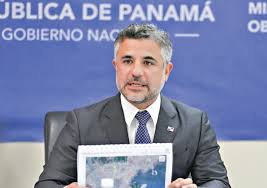Minister uses engineer title without endorsement

Panama’s beleaguered Minister of Public Works (MOP), Rafael Sabonge already under fire for alleged scandals linked to the construction the Ancon modular hospital is now facing questions about his use of the title “engineer” when signing documents,
In the official notes signed by Sabonge, his name is preceded by the Spanis h abbreviation (“Ing.”), Which indicates his profession.
The profession, like several others that require high technical levels – is regulated by laws that seek to ensure that those who practice it in Panama are qualified in the matter reports La Prensa.
The Technical Board of Engineering and Architecture (JTIA), which issues the suitability to practice engineering and architecture careers in Panama, as well as for companies that are engaged in the business told the newspaper “We have no record in the official JTIA registry that Mr. Rafael José Sabonge Vilar… has suitability of engineer to practice in the Republic of Panama
Sabonge’s resume – issued by the Ministry of the Presidency when he was appointed head of the Ministry) – indicates that he graduated as an engineer from the University of Texas in Austin.
The IATA note, indicates that Sabonge’s academic degree would not have been recognized by any of the five official universities that oversee private universities in the country and that revalidate degrees from foreign universities.
His CV also indicates that he has been in charge of several construction projects in which he has been “project manager”, including a government building: the current HQ of the Electoral Tribunal (TE).
The work, whose construction began in December 2010, was carried out by FCC Construcción, SA, valued at $29.8 million.
A site manager has responsibilities, such as reviewing plans and designs. A resolution of the JTIA, of April 2016, indicates that to exercise that position you must have the JTIA endorsement.
Anyone who prefers the titles of engineer, architect or technician “without having the respective suitability” commits “infractions” of the law that regulates the legal practice of these professions, typified in the Penal Code as “willful crimes”, warned the President of SPIA Marcos Murillo.
“In 2008, I started the procedures to obtain the suitability to practice within my country, procedures that I did not complete,” Sabonge said in a note.





